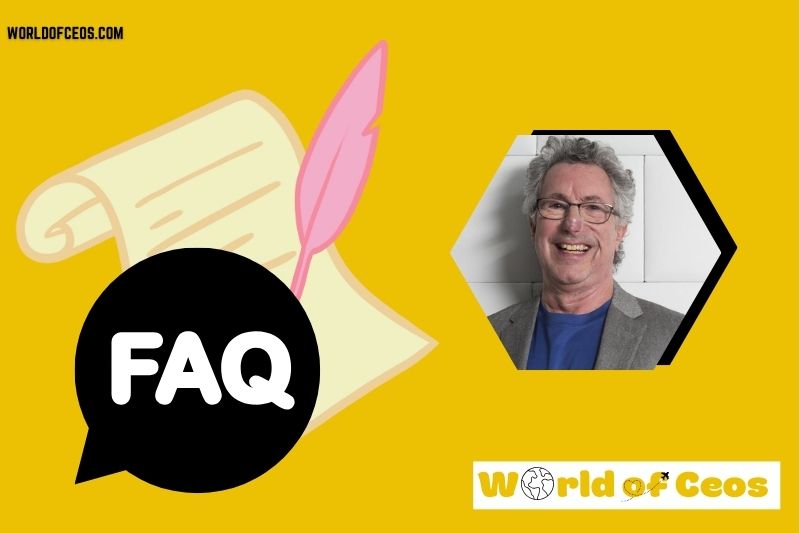As WorldofCeos, I dive into Beck Weathers net worth and financial achievements, exploring how this pathologist-turned-Everest-survivor built a legacy beyond medicine.
From battling extreme physical challenges to inspiring audiences worldwide, Weathers has turned his dramatic life story into a remarkable source of wealth and public influence.
Quick Facts
| FACT | DETAIL |
|---|---|
| Real Name | Beck Weathers |
| Popular Name | Beck Weathers |
| Gender | Male |
| Birth Date | December 16, 1946 |
| Age | 77 years |
| Parents | N/A |
| Siblings | N/A |
| Birthplace | Texas, USA |
| Nationality | American |
| Ethnicity | N/A |
| Education | Pathology; Wichita Falls, TX |
| Marital Status | Married |
| Spouse | N/A |
| Children | Two |
| Dating | N/A |
| Net Worth | $4 million |
| Source of Wealth | Pathology, Book Sales, Speaking |
| Height | N/A |
What is the Net Worth of Beck Weathers in 2024?

As of 2024, Beck Weathers’ net worth is estimated at $4 million.
Although Weathers might not be among the highest-paid in the medical field, his wealth primarily comes from his pathologist career, best-selling book, and motivational speaking engagements.
Compared to other richest authors, his journey is unique, shaped by resilience rather than traditional routes to wealth.
Related Figures:
- Jon Krakauer
- Josh Brolin
- Rob Hall
- Sandy Hill Pittman
- Richard Jenkins
- Anatoli Boukreev
- Yasuko Namba
- Scott Fischer
- Kevin Burdette
- Richard Bass
Beck Weathers Salary and Finance Overview

Early Life and Career Background
Beck Weathers’ journey started in Texas, where he trained in pathology after completing his education in Wichita Falls. His career as a pathologist established his financial base, though his income was moderate.
From the beginning, his passion for pushing physical limits led him to outdoor activities and, eventually, mountaineering.
Journey into Mountaineering and the Seven Summits Quest
In the 1980s, Weathers set his sights on the Seven Summits challenge, inspired by legendary climber Richard Bass.
His path to Everest, however, was marked by extensive preparation, which included climbing other peaks, building both his skillset and personal brand.
Pursuing this goal required financial investment in training, equipment, and expedition fees, revealing the intense cost of high-altitude mountaineering.
The 1996 Mount Everest Disaster – Survival Story and Financial Impact
The turning point in Weathers’ life came in May 1996 during the infamous Everest disaster.
Facing severe blindness and later hypothermia, Weathers’ near-death experience turned into a high-profile story when he was left for dead, only to make an unlikely survival.
Despite extreme amputations and months of medical care, Weathers gained newfound visibility. However, his medical expenses for surgeries and recovery were a significant financial burden.
Writing and Publishing ‘Left for Dead’
Following his survival, Weathers wrote Left for Dead, sharing his extraordinary story. The book found a broad audience, resonating with readers interested in human endurance and resilience.
His autobiography sold well, offering him both financial gains and a platform as a motivational figure. Book sales, royalties, and interviews provided a consistent revenue stream, transforming him from a local pathologist to a well-known public figure.
Media Appearances and Cultural Depictions
Weathers’ survival story inspired various media adaptations, including his portrayal by Richard Jenkins in Into Thin Air (1997) and Josh Brolin in Everest (2015).
These films, along with documentary features, significantly boosted his public profile. Being depicted in media added to his wealth indirectly, through increased book sales and speaking opportunities.
Motivational Speaking and Personal Appearances
Today, Weathers is a sought-after motivational speaker, traveling across the U.S. to share his story with corporate audiences, health institutions, and mental health organizations.
His speaking engagements generate income and allow him to address topics like survival, resilience, and mental health—specifically, his own struggle with depression.
His speaking career, coupled with book sales, has secured a steady source of revenue.
Physical and Emotional Recovery Post-Everest
After Everest, Weathers required extensive medical treatments, including reconstructive surgeries for his hands, nose, and feet.
His courage and perseverance have resonated within the mountaineering and mental health communities, where his story inspires others to overcome their own hardships.
His visibility within these communities has been instrumental in building his legacy beyond finance, adding a lasting impact to his career.
Honors, Awards, and Recognitions
Though Weathers has not received major awards, he is honored through the numerous mentions and portrayals of his survival in popular culture.
His influence remains strong, especially within the mountaineering and motivational speaking communities, where he is regarded as an emblem of survival against all odds.
His contributions continue to influence public perspectives on mental health and personal resilience.
FAQs about Beck Weathers

How did he survive the Everest disaster?
Weathers survived through sheer resilience, battling blindness, hypothermia, and severe frostbite. His survival remains one of mountaineering’s most remarkable stories.
What inspired him to climb Everest?
Weathers was inspired by Richard Bass and the idea that an “ordinary” person could reach extraordinary heights, leading him to pursue the Seven Summits.
Does he still work as a pathologist?
Though primarily known for his speaking career, he has continued to contribute to the field of pathology, especially in Dallas, Texas.
What surgeries did he undergo post-Everest?
He required multiple amputations and reconstructive surgeries for his nose, hands, and feet, which were severely frostbitten during the 1996 Everest disaster.
Was Beck Weathers’ story featured in any films?
Yes, his story was depicted in Into Thin Air (1997) and Everest (2015), where he was portrayed by Richard Jenkins and Josh Brolin, respectively.
Has he written any books?
Yes, he authored Left for Dead, detailing his journey before, during, and after the Everest disaster.
Where does he live now?
Beck Weathers resides in Dallas, Texas, where he continues his work as a pathologist and motivational speaker.
Why did he start mountaineering?
Mountaineering provided Weathers a way to cope with depression, allowing him to focus on physical challenges and find relief through adventure.
Does he still climb mountains?
After Everest, Weathers’ climbing activities decreased, especially due to his severe injuries, though he remains an avid outdoorsman.
Conclusion
Beck Weathers’ story is a powerful testament to resilience and transformation. His journey from pathologist to public figure demonstrates how adversity can lead to renewed purpose and financial success.
To explore more stories, check out worldofceos and join the conversation.

